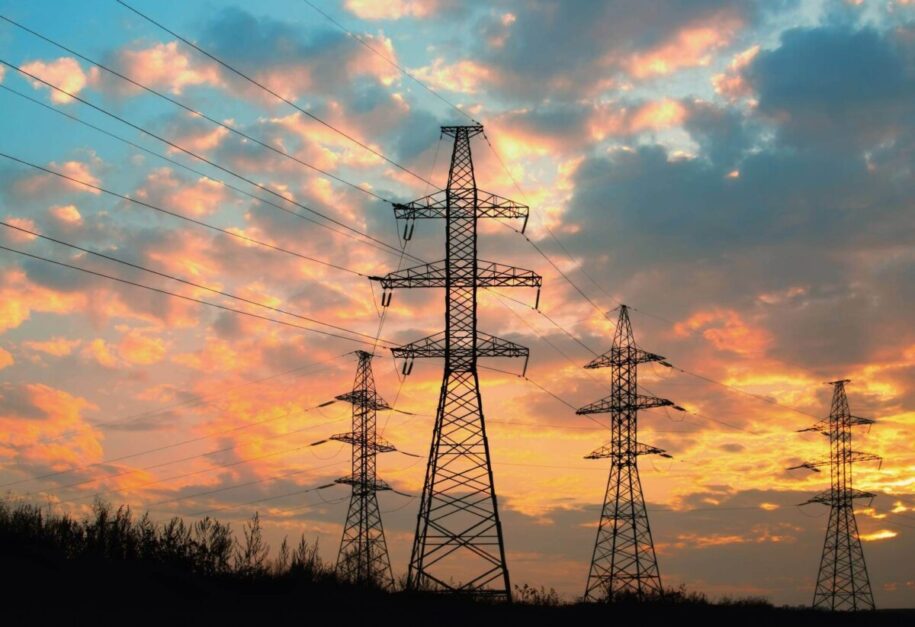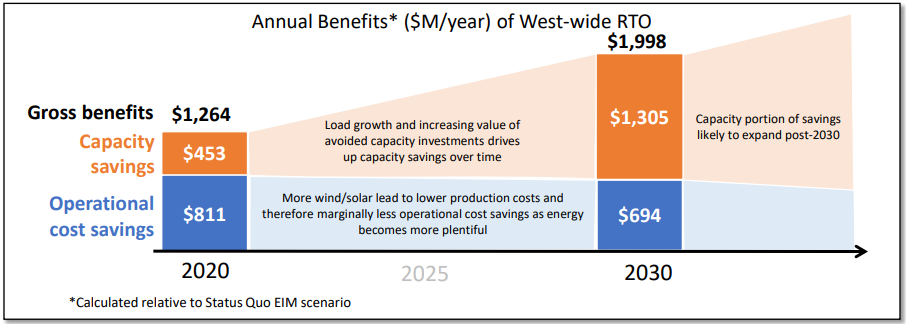Multi-State Study Confirms: A Western-Wide RTO Provides Substantial Gross Benefits

New research shows that bigger is better when it comes to expanding organized wholesale markets in the West. A two-year regional state-led Market Options study Exploring Western Organized Market Configurations: A Western States’ Study of Coordinated Market Options to Advance State Energy Policies has analyzed potential market configurations in the western region. The results are clear: a western-based wholesale market managed by a Regional Transmission Organization (RTO) covering a large geographic footprint is the most cost-effective and emissions-reducing approach to reaching western state energy goals.
This state-led Market Options Study was a U.S. Department of Energy funded effort led by Utah in partnership with the Energy Offices of Idaho, Colorado, and Montana. The study found that compared to an energy imbalance market/real-time market and day-ahead market, the formation of a western RTO would offer nearly $2 billion in gross benefits per year by 2030. In contrast, the day-ahead energy market could result in $747 million in annual cost savings. Even accounting for the administrative costs of setting up an RTO, estimated between $187 to $513 million per year, savings would still be significantly greater under a full-market construct.
This study is representative of the larger interest from western states to analyze market structures in order to achieve additional cost savings and improve regional planning. Two-thirds of the U.S. relies on RTOs to centrally optimize the operation of competitive and efficient real-time and day-ahead markets across diversified regions. However, many western states are still limited by siloed utility planning. Outside of organized markets, utilities unilaterally plan for resources and transmission developments, losing out on the opportunity to cost-effectively pool resources at least cost.

Other state-level research confirms the projected cost savings of forming a large western organized wholesale market. Colorado’s recent analysis of possible market formations found that a full RTO-managed market would maximize benefits, primarily from the reduced need for utilities to invest in storage resources. Both studies found that the broadest market footprint would provide greatest value due to the enhanced ability to integrate renewables when balancing over wider geographic areas. In addition, a wider market footprint under a single RTO would consolidate administrative costs.
Developing a more extensive organized wholesale market in the West could be the tool that helps western states, utilities, and customers achieve their clean energy goals cost-effectively. The state-led market study demonstrates that a western RTO can lead to meaningful carbon emissions reductions, decreasing emissions by an additional 3 million tons annually. Carbon emissions reductions across the West would benefit all customers, regardless of their individual market participation. Participation in a western RTO would also directly support state goals targeting clean energy or net-zero targets between 2045 to 2070. Energy customers benefit as research from the Clean Energy Buyers Institute shows organized wholesale markets provide greater customer choice and market transparency that help customers achieve clean energy and carbon reduction goals.
As state momentum continues to grow, this study marks an important step in identifying a western-wide RTO as the most impactful and cost-effective market option for western states. To learn more about CEBA’s work on organized wholesale market expansion in the West, contact innovation@cebuyers.org.
